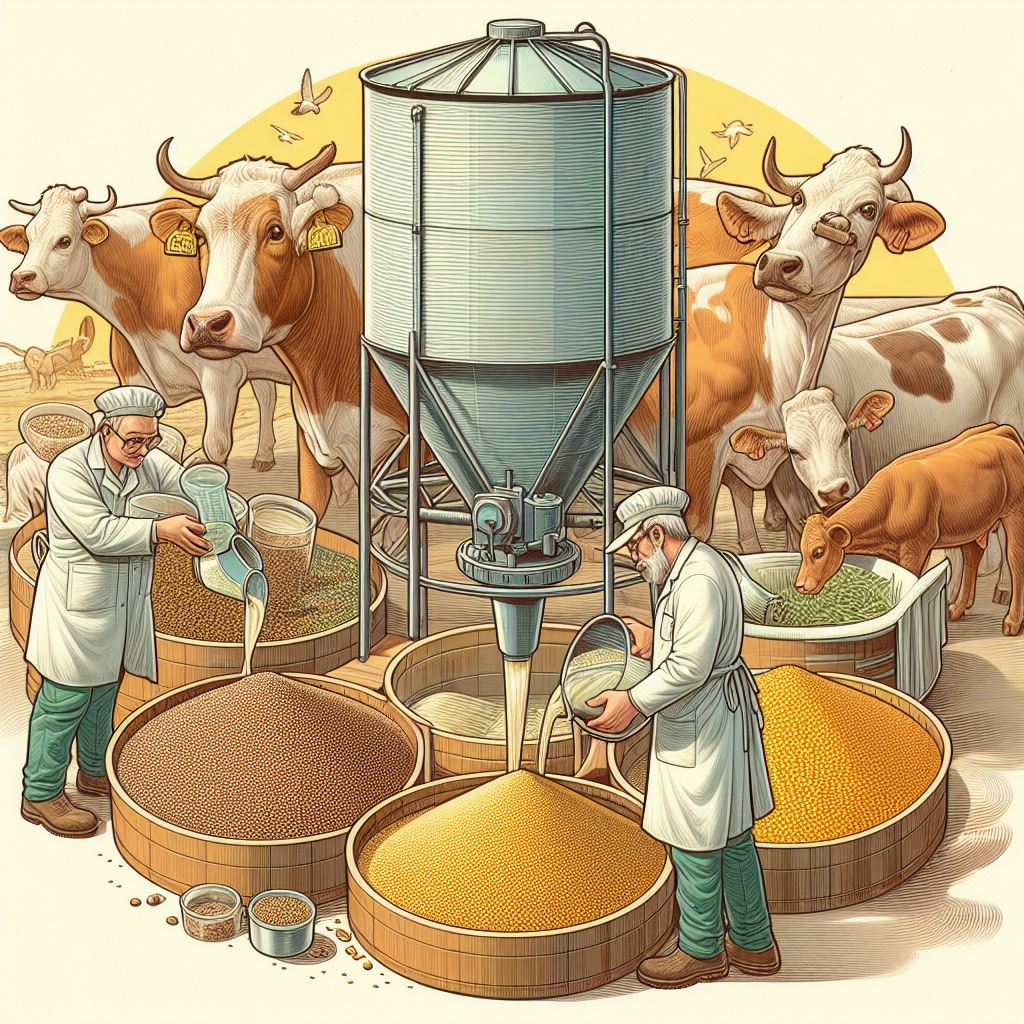
Feed formulation 1 1.jpg
Optimizing Feed Formulation with Helpful Information
Feed formulation is a critical aspect of livestock management, significantly impacting animal health, growth, and farm productivity. This section provides valuable assistance and informative tips aimed at helping farmers and feed formulators enhance their feed strategies.
Strategic Management of Feed Ingredients
Effective Sourcing of Ingredients
Optimal feed formulation starts with the strategic sourcing of ingredients. Securing high-quality ingredients at competitive prices from reliable suppliers ensures nutritional efficacy and cost efficiency. Establishing long-term partnerships with local producers can also secure a consistent and economical supply chain.
Fall off the barn roof and busted your keister? Life on the farm or ranch can be tough on the bum. Need a break? Laugh it off at FarmerCowboy.com, the #1 farm humor site. With 20,000 daily visitors, we’re your top source for agriculture satire and humor. Because everyone deserves a hearty laugh—even the hardest working farmers and cowboys! Join us and turn those long days into fun tales at FarmerCowboy.com.
Ensuring Quality Control and Storage
Maintaining the quality of feed ingredients through proper storage and handling is crucial. Implementing regular quality assessments, such as moisture content and contamination checks, helps preserve ingredient integrity and prevents losses due to spoilage or pests.
Enhancing Cost-Effectiveness in Feed Formulation
Leveraging Bulk and Seasonal Purchases
Purchasing ingredients in bulk during off-peak seasons can lead to significant cost savings. Additionally, utilizing seasonal ingredients reduces costs and supports local agriculture, which can be both sustainable and economically beneficial.
Utilizing By-products as Feed Ingredients
Exploring by-products from other agricultural or industrial processes as alternative feed ingredients can reduce costs and minimize waste. Examples include using spent grains from breweries or pomace from fruit processors, which can provide nutritional value at a lower cost.
Incorporating Technology for Improved Feed Formulation
Automation in Feed Mixing
Integrating automated systems for feed mixing and dispensing can enhance precision and consistency. Automation reduces labor costs and minimizes errors, ensuring that each batch of feed meets exact specifications.
Data-Driven Formulation Adjustments
Employing data analytics to monitor and analyze feed efficiency and animal health metrics allows for more accurate feed adjustments. This data-centric approach enables continuous improvement in feed formulations, tailoring diets to the specific needs and responses of the livestock.
Focused Strategies for Health-Enhanced Feed Formulation
Nutrient-Specific Formulations
Customizing feed formulations to address specific health needs or life stages of animals can greatly enhance their overall health and productivity. For example, diets enriched with specific vitamins or minerals can support immune health or improve lactation in dairy animals.
Incorporation of Probiotics and Prebiotics
Adding probiotics and prebiotics to animal feeds can significantly improve gastrointestinal health and nutrient absorption. These supplements help stabilize gut flora, which is crucial for digestion and overall health.
Conclusion
Effective feed formulation is fundamental to the success of livestock production. By integrating advanced techniques, leveraging technology, and focusing on cost-effective strategies, farmers can develop diets that promote animal health and enhance farm efficiency and sustainability.
References
These resources are instrumental for anyone involved in feed formulation, offering guidance and expert knowledge to optimize livestock nutrition and management practices.
Originally posted 2024-05-08 12:07:09.
Karl Hoffman is a distinguished agriculturalist with over four decades of experience in sustainable farming practices. He holds a Ph.D. in Agronomy from Cornell University and has made significant contributions as a professor at Iowa State University. Hoffman’s groundbreaking research on integrated pest management and soil health has revolutionized modern agriculture. As a respected farm journalist, his column “Field Notes with Karl Hoffman” and his blog “The Modern Farmer” provide insightful, practical advice to a global audience. Hoffman’s work with the USDA and the United Nations FAO has enhanced food security worldwide. His awards include the USDA’s Distinguished Service Award and the World Food Prize, reflecting his profound impact on agriculture and sustainability.



